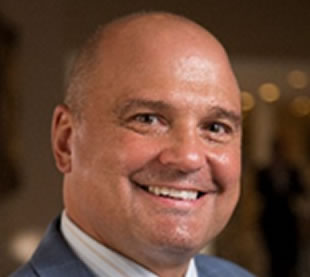
How Employers Are Helping Their Employees Retire
Employers are becoming increasingly concerned about the financial well-being of their employees, and they are expanding how they demonstrate their loyalty. Employers large and small are offering programs such as robust health insurance plans, on-site daycare, after school care, flexible work hours, Health Savings Accounts (HSA’s), and the ability to work remotely. Some companies also provide on-site amenities such as workout facilities and yoga classes while others reimburse health club dues, and employ nutritionists and personal trainers.
As it relates to financial wellness, employers are also taking an active role to help employees reach their long-term financial goals. In 2016, according to the National Compensation Survey conducted by the Bureau of Labor Statistics, the percentage of private-sector workers who had access to a defined contribution plan such as a 401(k) or a defined benefit pension plan was 66%.
In addition to simply offering a defined contribution retirement plan, employers are embracing the ability to automatically enroll workers in their 401(k) plans. This is known as automatic enrollment, or automatic contribution arrangement. This allows for eligible employees in 401(k), 403(b) and 457(b) plans, SARSEPs and Simple IRA plans to have a percentage of their wages automatically directed into their company’s retirement plan without the participant’s explicit authorization. Unless a participant opts out, the Company will continue to redirect a portion of an employee’s paycheck into their retirement savings account. Of course, all of an employee’s contributions are immediately and fully vested which means the plan participant has full rights to their contribution at all times. This is important because workers can be skeptical when their hard earned money doesn’t arrive into their paycheck; knowing they have immediate vesting can help participation rates.
First introduced by The Pension Protection Act of 2006, the concept of automatically redirecting money from a worker’s paycheck and setting it aside for retirement was slow to develop. However, by 2014, several industry surveys reported that over 50% percent of companies offering 401(k) plans offered automatic enrollment, and this feature has led to higher participation rates.
Another feature that complements automatic enrollment is automatic escalation. Automatic escalation refers to the automatic increase in salary deferral contributions that participants make into their defined benefit plans such as a 401(k) plan. While this has become more popular, according to a 2016 report issued by Northern Trust, only 32% of plans utilized automatic escalation. This is unfortunate since combining both auto features leads to better results for workers.
There are many challenges facing workers who are trying to save for retirement. Workers feel strained by the expenses of daily living and struggle to contribute to their retirement. They are reluctant to save and take home less pay now – even though they receive an immediate tax benefit and a stronger retirement income later. To help workers understand the retirement planning challenge, employers are offering more education and financial wellness workshops. But unfortunately education alone will not solve this problem. From 2008 to 2015 wage growth was stuck in a 2% growth range and workers found themselves with little discretionary income to invest. If wage growth picks up, as it has since 2016, workers may be able to increase their retirement plan contributions.
In addition to automatic features, the biggest tool employers have to entice their participants to save more is a generous matching contribution, which is also tax deductible for the employer. However, according to the 401kHelpCenter, of plans offering a match, the average match is only 2.7%. Even the traditional Safe Harbor matching formula caps out at a company contribution of 5%, and this may set an artificially low bar if workers only want to maximize the company match. Overall, in 2016 the average salary deferral rates were about 6%, and according to the Bureau of Labor Statistics, U.S. incomes averaged $44,148 in 2016. Taking this 6% salary deferral multiplied by average annual income results in the typical American saving less than $3,000 per year in their retirement plan. Even if wisely invested, this will barely be enough to fund a middle class retirement for many workers. This is where auto escalation, along with a sizable matching contribution, can be valuable for workers.
Another area that has seen increased focus is investments and specifically, Qualified Default Investment Alternatives (QDIA’s). The most popular QDIA’s are Target Date Funds (TDFs). TDFs provide an easy way for a participant to have their assets managed and they are increasingly popular capturing the majority of new plan contributions. TDFs are an age-appropriate, diversified, professionally managed investment strategy that becomes more conservative as participants age. In recent years there has been a sharper focus on both the performance and costs of TDFs which benefits participants.
To be sure, the dramatic shift away from defined benefit plans to defined contribution plans over the past decades has created the need for employers to do more to help their workers. While workers retain ultimate responsibility for funding their future financial freedom, companies can engender loyalty with a well-structured and generous retirement plan. The combination of matching contributions, educational programs, automatic enrollment, automatic escalation, as well as a focus on lowering costs and offering a solid investment lineup, helps employers play a more active role on behalf of their employees. With the enormous retirement planning challenge facing our country, we need all employers to take this issue head on.
Learn more about Mark Avallone’s recently released book, Countdown To Financial Freedom
Mark Avallone, MBA, CFP®, CRPS®. www.PotomacWealth.com
Securities and Investment Advisory Services offered through H.Beck, Inc., Member FINRA/SIPC. 6600 Rockledge Drive, 6th Floor, Bethesda, MD 20817 301.468.0100. Potomac Wealth Advisors, LLC is not affiliated with H.Beck, Inc.
This material represents an assessment of the market environment at a specific point in time and is not intended to be a forecast of future events, or a guarantee of future results. This information should not be relied upon by the reader as research or investment advice regarding any funds or stocks in particular, nor should it be construed as a recommendation to purchase or sell a security. Past performance is no guarantee of future results. Investments will fluctuate and when redeemed may be worth more or less than when originally invested. Diversification and asset allocation do not guarantee against loss. They are methods used to manage risk.
* Opinions expressed are subject to change without notice and are not intended as investment advice or to predict future performance.
*The economic forecasts set forth in the presentation may not develop as predicted and there can be no guarantee that strategies promoted will be successful.
* Consult your financial professional before making any investment decision.This material represents an assessment of the market environment at a specific point in time and is not intended to be a forecast of future events, or a guarantee of future results. This information should not be relied upon by the reader as research or investment advice regarding any funds or stocks in particular, nor should it be construed as a recommendation to purchase or sell a security. Past performance is no guarantee of future results. Investments will fluctuate and when redeemed may be worth more or less than when originally invested.





Engage us on Facebook
Follow us on Twitter
Tweets by @mymcmedia